games博客:观察家评Facebook用户隐私政策演变史
上周被《华尔街日报》披露出来的Facebook游戏出卖玩家个人信息事件,确实警醒了不少用户,如果你还不知情,笔者再次补充说明:包括Zynga公司的《FarmVille》、《Zynga德州扑克牌》(Zynga Poker)和《拓荒者小镇》(FrontierVille)等Facebook头牌社交游戏,都已经被曝出曾向网络广告公司及数据银行等第三方提供玩家个人信息,从商业广告用途中谋利。
尽管Facebook立马作出回应否认这一情况,但该社交网站的有关历史记录可是板上钉钉的事实,忽悠不了大众,如果细察Facebook过去5年中不同的用户隐私政策表述,就不难发现用户信息安全究竟是如何在不知不觉中沦陷。
自从Facebook问世以来,该社交网站就一直在以缓慢而坚定的步伐走向世界,但Facebook的发迹得益于一个沉重的代价:用户隐私。解释这一现象,要先回顾Facebook用户隐私条款从头到尾的演变过程:
2005年 “任何不在您联系人列表中的用户,都无法查看您在Thefacebook提交的个人信息。”这个表述换句话说,就是Facebook在原来还称为“Thefacebook”的时候,其创始人及现在的Facebook CEO马克·扎克伯格(Mark Zuckerberg)曾信誓旦旦,不允许非用户直接联系人列表的成员窥探该用户个人信息,但用户将个人信息设定为公开状态的情况除外。Facebook执行这项条款的时候,与该网站向高中及国际校园网络进军的动作发生在同一时间。
2006年 “我们默认的用户保密设置仅限于您的学校、所在地区以及我们所告知您的其他合理性的社区限制。”这一政策表述出台时,Facebook已面向一系列网站添加了(信息)“共享”功能,向用户的原有联系人公开其个人网站信息,甚至越俎代庖,自个替用户做了信息公开状态的决定。要知道在当时,社交游戏的场面还没有现在这么火爆。
2007年 “在信息设置为公开状态的前提下,其他用户通过Facebook网站都可以搜索到您的姓名、学校名称、缩略图片等资料。”简单而言,就是说Facebook用户可以通过主动搜索对方资料,相互结交朋友。有趣的是,这一时期,Facebook游戏开发平台也刚刚出炉。想想看,如果用户之间相互拜访、共享资源不这么自由和随意,社交游戏的发展势头还会这么强劲吗?所以说自由开放也是一把双刃剑。
2008年 Facebook推出了更多隐私控制措施,支持用户自我设置允许向朋友公开的信息。与此同时,Facebook Connect功能也开张了,允许用户使用自己的Facebook信息,登陆其他网站。当然这种措施对用户来说极其方便快捷,但个人信息也进一步透明化,隐私安全也更易受到威胁。不幸的是,如果不安装这项功能,手机用户就无法体验Facebook游戏,这就意味着手机用户也难逃Facebook隐私陷井。在隐私与社交两者间的灰色地带,用户尽情体验游戏乐趣,而浑然不知自身信息安全已遭侵袭。
2009年 “您所提交的默认设置状态的信息将向所有人公开,可以重新检查个人信息并更改默认设置。”这就意味着,如果用户不将信息设置为保密状态,只要通过谷歌之类的搜索器,人人都可以在网上看到你的资料。这一年,Facebook原先的“共享”功能按钮也被“喜欢”这个功能所取代。说实话,这一操作更是打开了社交游戏大门,让用户通过“喜欢”按钮力挺自己最爱的游戏,使该游戏的知名度呈星火燎原之势迅速扩散。另一方面,如果用户使用了“喜欢”这一功能,就等于是一种个人喜好的公开宣言,数据调查公司也可以顺腾摸瓜找上门,获取用户在《FarmVille》之类游戏上所显示的资料。
2010年 Facebook的图像公开政策受到热情追捧,一时难以降温,使用户所“喜欢”的信息在所有支持这一功能的网站中进一步公开和传播。但比这更重要的是Facebook最近的政策表述变化,“当您登陆一款应用或网站时,该应用或网站可以获取您的基本信息。”“基本信息”这一词语包括用户本人及朋友的姓名、照片、性别、用户ID、联系人,以及曾经与他人分享的内容(在信息设置为向所有人公开的前提下)……用户在Facebook采用默认设置的信息将向所有人公开。这也意味着在用户不知情的情况下,其个人基本资料很可能早已被应用和游戏开发商盯上了。最近,Facebook又加强了信息控制,限定了应用可接触的用户信息范围。但在一些用户看来,他们所登记的一些信息很敏感,不想被公开化,希望Facebook会有更多示好举动,所以这一控制措施对他们而言根本没有多大意义。但比较不幸的是,这件事情看起来已经没有什么转机了。
如果不以开放用户个人信息为代价,许多社交游戏根本无法取得今天的成就,虽然这种说法并不能为Facebook开脱罪名,但用户必须清楚,当自己“同意”应用获取个人信息时会有什么后果。
使用互联网,就算只是玩游戏,用户无论有多小心,都有可能在不经意间泄露自己的信息。虽然并非每一次网络体验都可能发生像Facebook这样擅自把用户信息输送给第三方的情况,但在线游戏玩家从此就要提高警惕了,千万记得先把所有个人资料都设置成“保密”状态,然后才能放心回归游戏世界。(本文为游戏邦/gamerboom.com编译)
Facebook gaming and privacy: What a long, strange trip it’s been
TweetHopefully all of you are already aware of the unfortunate information the Wall Street Journal discovered on just what Facebook apps are doing with your “general” information. But if you’re still under a rock — which these days equates to not waking up with a smartphone next you — it was revealed by the WSJ that top ranking Facebook apps and games like Zynga’s FarmVille, Zynga Poker and FrontierVille have been providing web advertising companies and data banks your personal contact information to use for targeted ads.
Facebook posted a prompt (and slightly defensive) response, but the social network’s track record won’t exactly help them out on this one. Let’s take a good, long look at how Facebook’s changes over the years have slowly eroded your privacy before and while playing games on the social network.
Since Facebook’s launch, the company has slowly but surely opened up the network to the globe, but it’s come at a serious price: your privacy. So, let’s take a look at Facebook’s privacy policies starting from the beginning:
•2005–”No personal information that you submit to Thefacebook will be available to any user of the Web Site who does not belong to at least one of the groups specified by you in your privacy settings.” In other words, when the Facebook originally launched as “Thefacebook,” (surely, you’ve all seen The Social Network) creator and now Facebook CEO Mark Zuckerberg pledged to not publish any private information to those who weren’t immediate members of your group, changeable in the Privacy Settings. This is also the same time as when Facebook expanded to high school networks and international schools. Boy, this would have been nice for gaming, wouldn’t it?
•2006–”Our default privacy settings limit the information displayed in your profile to your school, your specified local area, and other reasonable community limitations that we tell you about.” This is about when Facebook added the “Share” button to a bunch of websites, opened the site up for any old fellow and decided that they knew better than we did about our personal information. Think about, this is before social gaming even blew up.
•2007–”Your name, school name, and profile picture thumbnail will be available in search results across the Facebook network unless you alter your privacy settings.” Put simply, this was about when Facebook users could discover one another outside of their own networks and intentionally make friends. Funny thing, this is the same time that the Facebook developer platform launched, which is what Facebook games are created on. Consider this, would social games be able to grow as quickly as they did without players being able to discover one another so freely? A double-edged sword, if you ask me.
•2008–Facebook releases more privacy controls, by allowing users to limit what they publish to their friends’ feeds. However, this is also the same time that Facebook Connect opens up, allowing users to log in to other web sites using their Facebook login information. Sure it’s super easy (I’m horribly guilty of it, too), but this is where things started to get visibly open and considerably more dangerous. Unfortunately, Facebook gaming on mobile devices isn’t really possible without this technology. Welcome to the fun grey area of privacy vs. socially enhanced entertainment.
•2009–”The default privacy setting for certain types of information you post on Facebook is set to “everyone.” You can review and change the default settings in your privacy settings.” It was this fateful year that our profiles became publicly available to anyone who wished to find us via Google and the like unless we changed that in the Privacy Settings. This is also the same year where the infamous “Like” button slowly replaced the “Share” button. Honestly, this only cracked open the floodgates further for social gaming, allowing players to “Like” their favorite game, which would spread that buzz like wildfire. On the other hand, choosing to “Like” something is making a public statement about who are, which could easily be tracked by ad data firms in conjunction with the information that you were providing FarmVille with.
•2010–The Open Graph Policy arrives to both fanfare and fervor, allowing what we “Like” to be broadcast and used openly by the web sites that provide the option. But more importantly is Facebook’s most recent policy change,” When you connect with an application or web site, it will have access to General Information about you. The term General Information includes your and your friends’ names, profile pictures, gender, user IDs, connections, and any content shared using the Everyone privacy setting. … The default privacy setting for certain types of information you post on Facebook is set to “everyone.” This means that in reality, the creators of these apps and games have been using your general information (I don’t necessarily consider profile pictures and my friends’ names “general” information) for who knows how long. Recently, Facebook added further control to what information specific applications could access with the added option of removing yourself from email lists. However, since players who provide this information–some of which players might consider sensitive–are open to more benefits, these increased controls might not be so appealing. Unfortunately, it seems as if there is no going back now.
All things considered, many of social gaming’s achievements and rapid growth would not have been possible without the network taking such liberties with our personal information. Of course, that
doesn’t excuse Facebook’s actions, but everyone should understand what it means when they ‘Allow’ applications to access their personal information.
Using the Internet, even for gaming, for any period of time will reveal information about yourself to the world no matter how you slice it. While it doesn’t make things like Facebook passing our personal information to data mining companies OK, these are issues that online gamers need to pay attention to if we want to enjoy social entertainment in the future. So, if it makes you feel any better, do what you can: Set everything to “Private” and game on. (source:blog.games)

























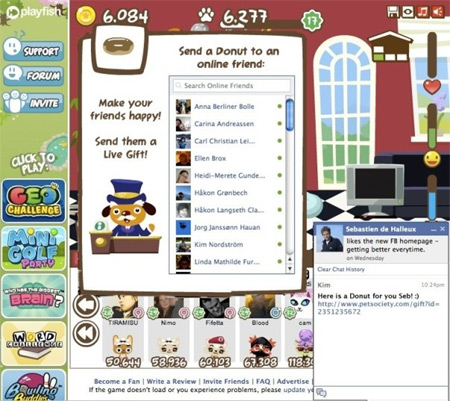
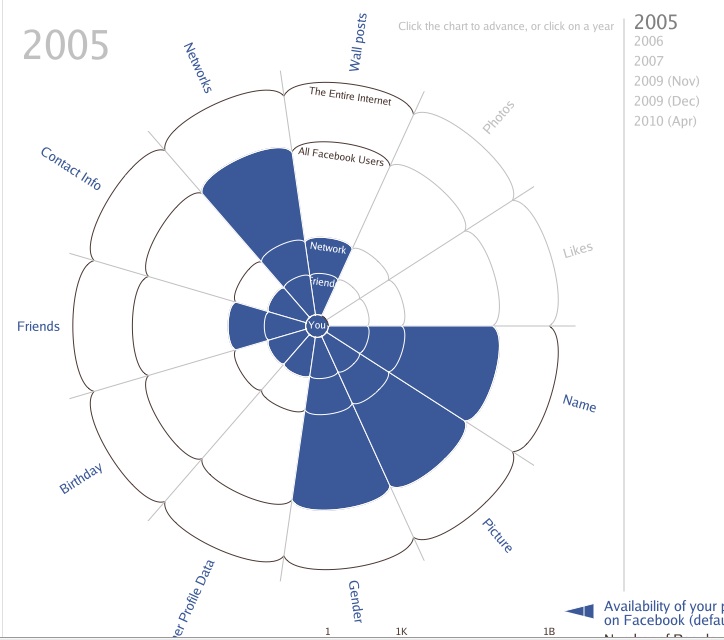
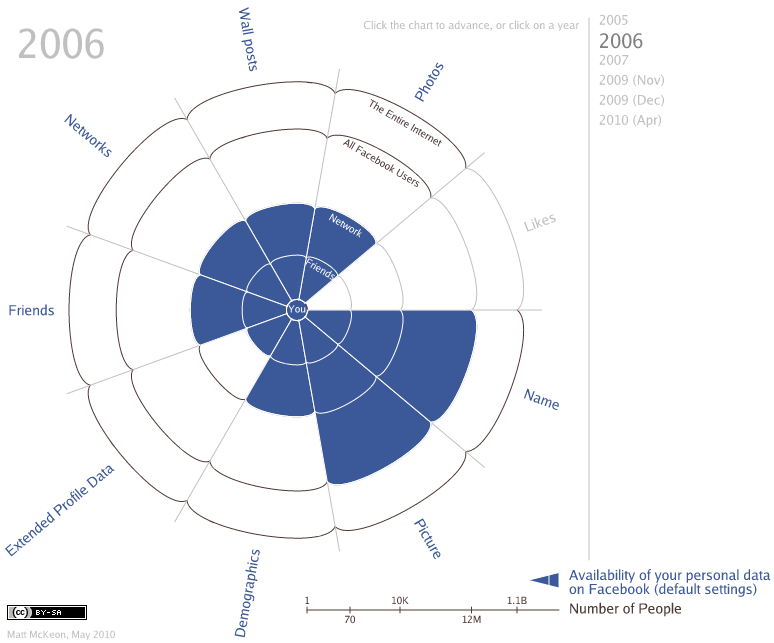
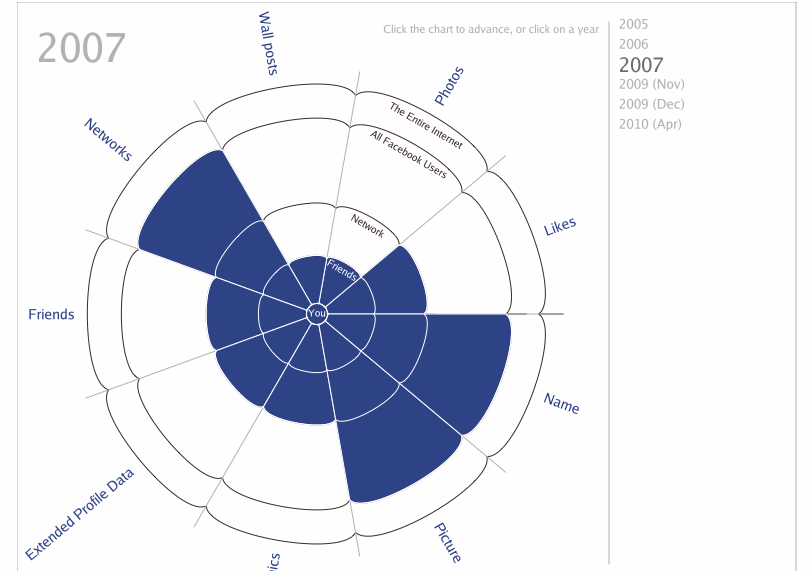
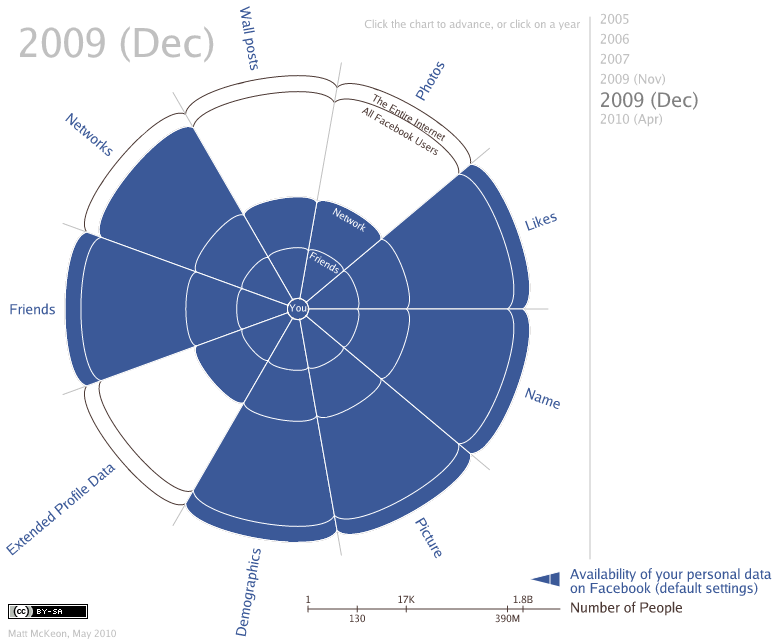
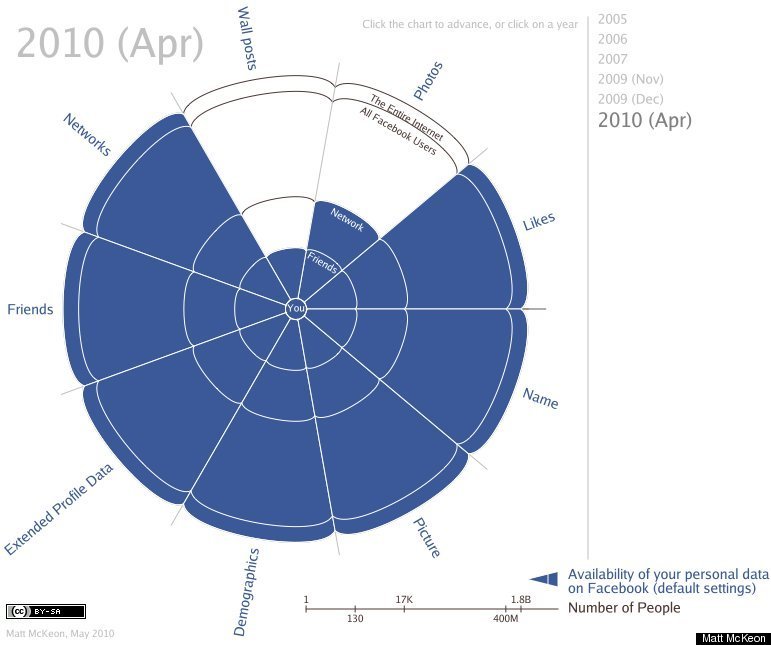
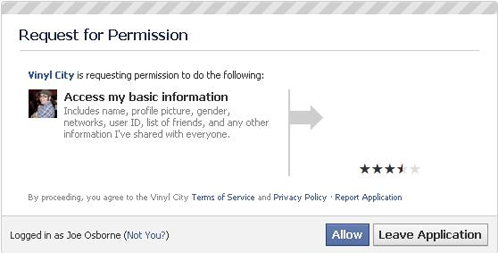














 闽公网安备35020302001549号
闽公网安备35020302001549号